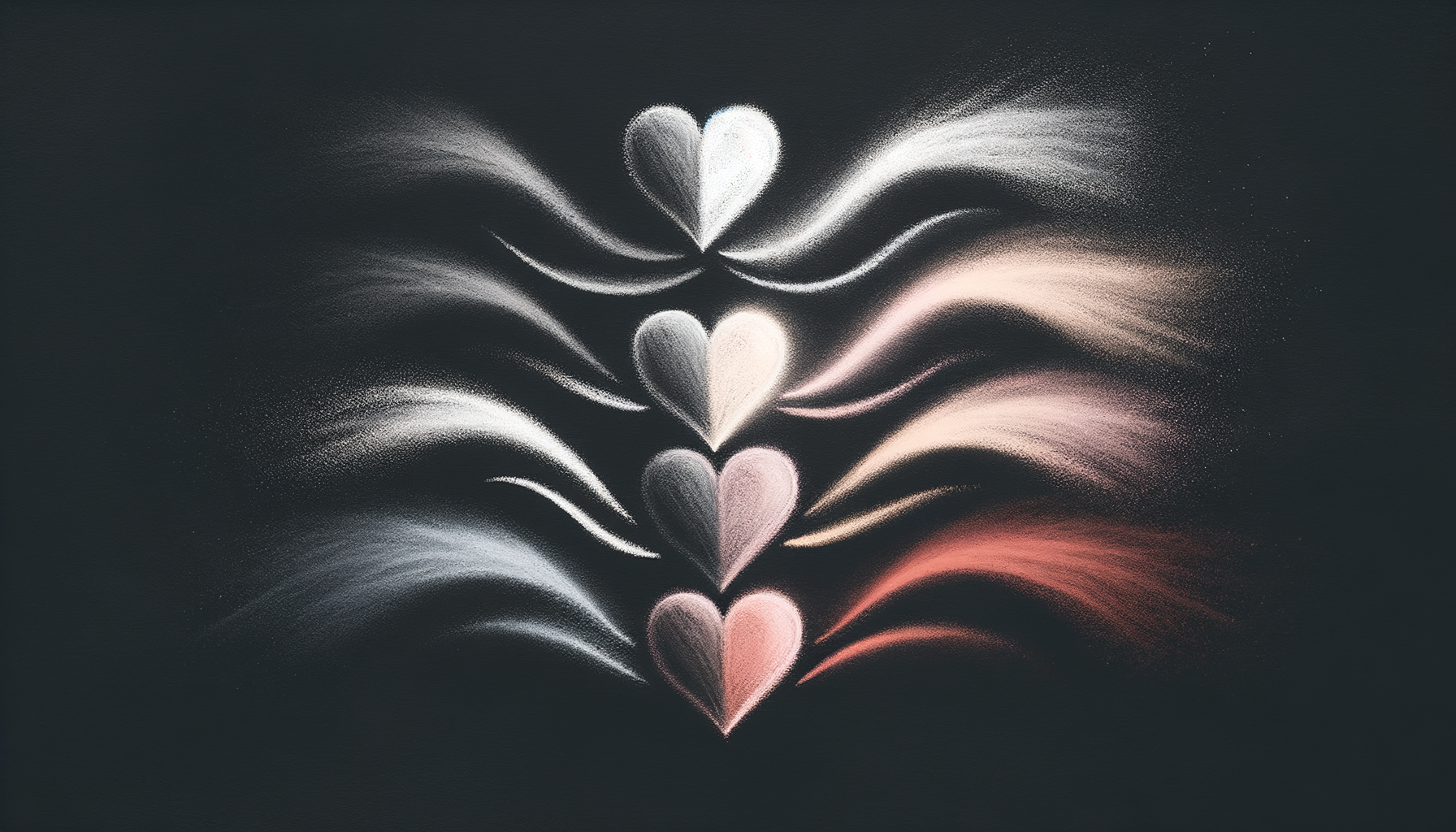I had the kind of meltdown that makes you question everything: your sanity, your decisions, and whether or not eating two entire sleeves of Oreos qualifies as "self-care" or "just a Tuesday." It was two years ago, right in the middle of what felt like a perfect relationship—keyword: felt. My then-partner and I were trying to learn how to communicate better (thank you, well-intentioned couple’s therapy) and somehow ended up navigating the conversational equivalent of a minefield. Spoiler alert: I tripped, fell, and metaphorically exploded. This was the moment I didn’t think I’d survive—or at least, the relationship I built my whole identity around didn’t.
Looking back, it wasn’t just about the fight. It was about me clinging to some storybook version of love, the kind I’d long idealized but hadn’t had the maturity—or honesty—to really interrogate. So, here we are: one part breakup reflection, one part practical advice, and a good splash of humor because hey, surviving romantic implosions deserves a laugh (or ten).
That One Fight: When "Good Intentions" Go Terribly Wrong
Let me paint the scene. It's a brisk March evening, the kind where you can still smell the last traces of winter in the air. My partner and I were sitting on the couch—well, they were sitting; I was pacing, which in hindsight was a clear warning sign. The topic? Something benign about spending more time together or being more “present,” which turned into an escalating loop of misunderstandings. You know the kind where suddenly you’re arguing less about the actual issue and more about how you’re arguing about it?
At one point, my partner expressed their feelings about needing alone time—a perfectly reasonable thing for anyone to say. But what I heard? “You’re smothering me, Caleb.” And instead of calmly clarifying (because, really, a deep breath could've saved us both), I spiraled into theatrical martyrdom. Picture every dramatic rom-com character rolled into one meltdown: “So, you don’t like being around me?!” complete with hand gestures straight out of an off-Broadway debut. It was...not my proudest moment.
This fight, ridiculous as it sounds now, forced me to confront something crucial: my inability to sit with discomfort. Instead, I tried to control it by over-communicating, something I thought was noble but really just poured more fuel onto the fire. Turns out, sometimes love requires less talking and more trusting.
Lessons Learned in the Aftermath
The fallout from that night wasn’t instant. We patched things up for a while, but the cracks were too deep—and honestly, those cracks weren’t just in the relationship. They were in me. So when the breakup finally came, it felt as though I’d lost not just my partner but also my identity. Who was I without this person? Without this role of “caretaker” I’d dreamily assigned myself?
It was only after months of solo hikes into the Wasatch Mountains that I started piecing together an answer. And yes, I’m recommending the life-altering power of walking uphill while you cry into the alpine air. But if mountain trekking isn't your thing, here are the key lessons without requiring snow boots:
-
Discomfort Won’t Kill You No Matter How Scary It Feels
That night on the couch, I couldn’t handle the thought of losing control. Discomfort felt too threatening. But relationships (the good, bad, and messy) thrive when discomfort is a shared challenge—not a monster to slay alone. Learning to hold space for tough emotions is essential. -
Pause Before You Speak—Sometimes You’re the Problem
My instinct in fights was always to say something—anything—to fill awkward silences. But rushing to “fix” the moment only made it worse. Now, I practice pausing. Like, physically stopping myself from speaking until I’ve reflected or cooled off. (Pro tip: taking a glass of water to the sink and back is a great excuse for a time-out.) -
Romance Isn’t About Perfect Symbiosis
I used to buy into this idea that great relationships meant being on the exact same wavelength 24/7. That every desire, fear, and Netflix preference (yes, even Bridgerton vs. that gritty murder doc) should sync up perfectly. Now I know: love matters more when there’s room for two entire, textured, imperfect humans.
Flipping the Script: Breaking Free from “Relationshipper’s Guilt”
After the breakup, I was drowning in this weird guilt—like I had failed not just the relationship but this unspoken rule of being a “perfect partner.” I asked myself ridiculously existential questions, like: was I fundamentally unlovable? Why couldn’t I fix my flaws fast enough to be better for someone else? At one point, I even considered an “apology-care-package” complete with their favorite snacks. (Friends talked me out of it, thank goodness.)
Here’s the thing: relationships don’t break because one person “fails” at love—they break because two people, no matter how much they care, aren’t right for that chapter of each other’s lives. That realization freed me, not just from guilt but also from perfectionism.
If you’ve been there—chasing after that person who doesn’t want the same future you do, blaming yourself for every misstep—here’s a strategy I swear by:
-
Write a letter to your younger self explaining why the breakup happened. Take time to forgive every cringy thing you said, did, or ignored while you were “in the moment.” Reframe your failures as stepping stones toward a clearer, kinder version of yourself.
-
Then, make peace with the partner from your past. Not by actually texting them (nope, step away from the phone!) but by reminding yourself that neither of you had all the tools you needed at the time.
Closing the Loop: How “The Challenge” Saved Me
Here’s the funny part: the moment I didn’t think I’d survive? It became the most transformative experience of my life. Nothing strips you bare and forces you to rebuild faster than the end of something you thought was forever.
I spent the next year building the kind of relationship with myself that I always wanted someone else to give me. I learned how to take hikes alone without feeling lonely. How to sit in silence without overthinking my entire existence. And, importantly, how to laugh at myself—because cracking jokes about your dating disasters (like comparing your crying face to Kim Kardashian’s infamous meme) beats wallowing any day.
So, if you’re facing a moment that feels impossible, if your heart’s been broken in ways you didn’t know were possible—please believe me when I say: you will survive. You’ll survive, and you’ll wake up one day even stronger. Maybe even making jokes about how many sleeves of Oreos you consumed while sobbing into your pillow. Or maybe that’s just me. Either way, you’ve got this—and I promise, it gets easier.




















